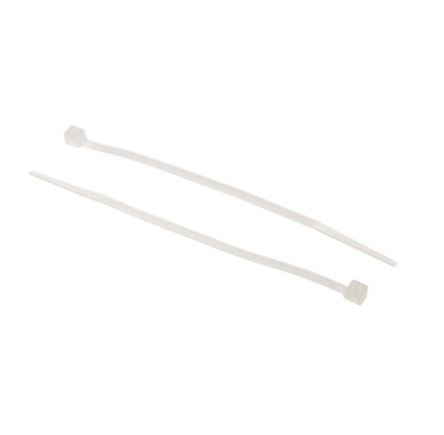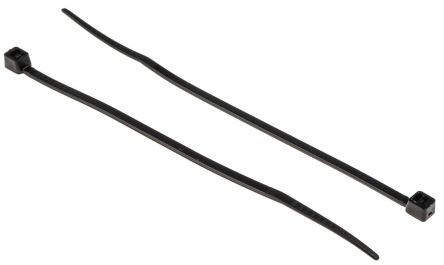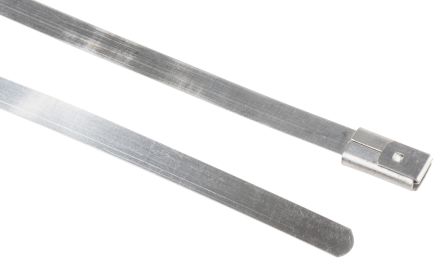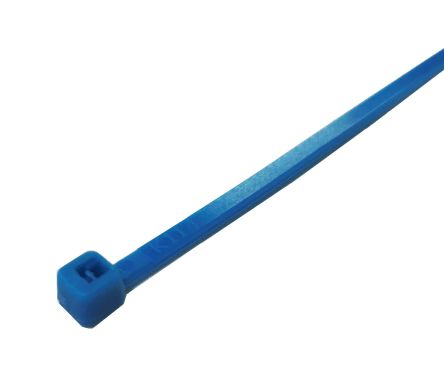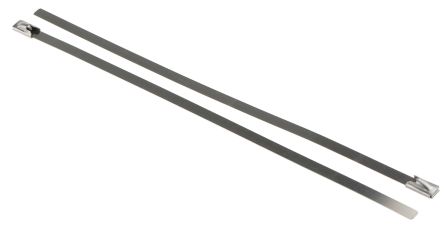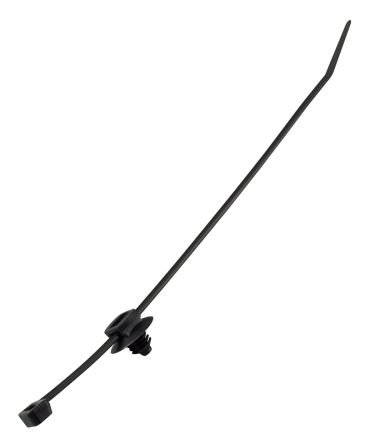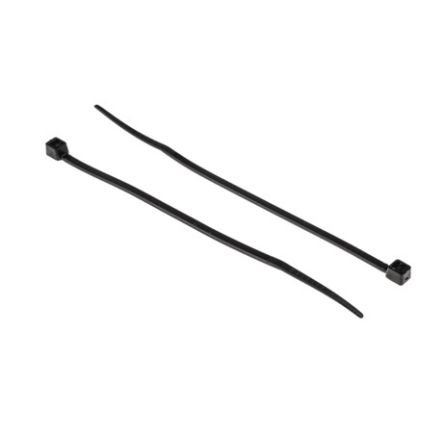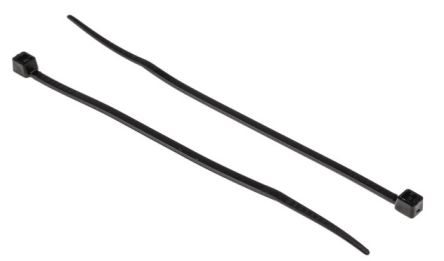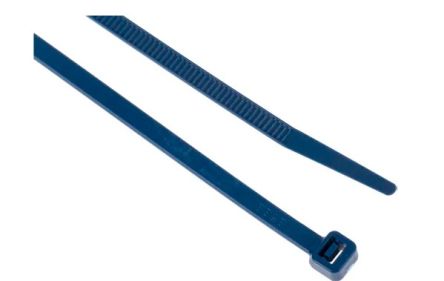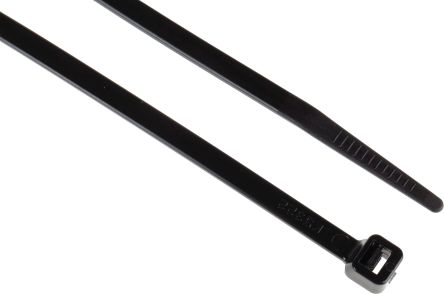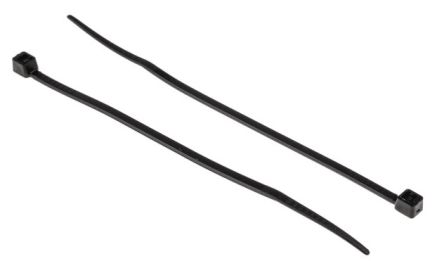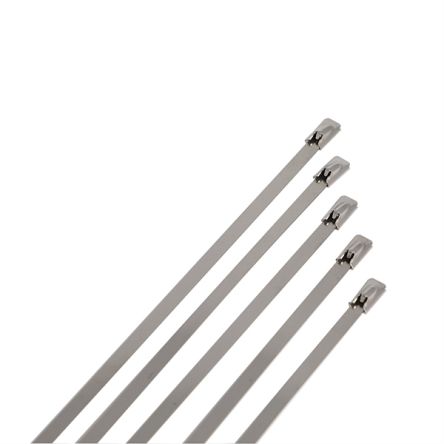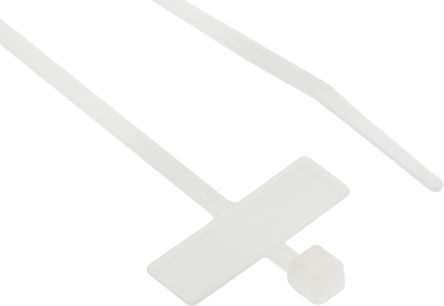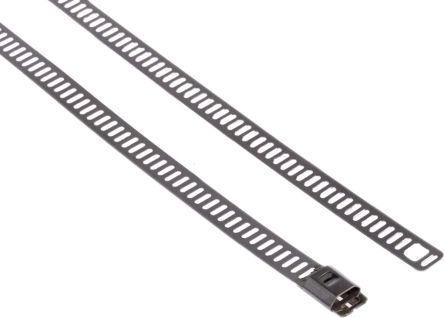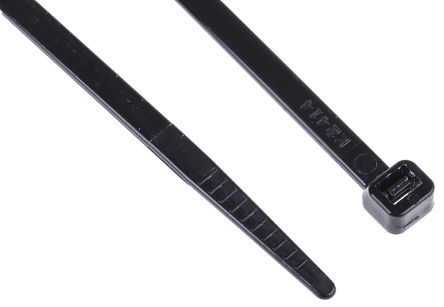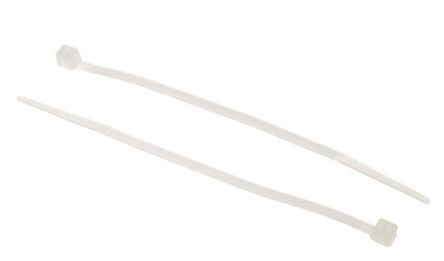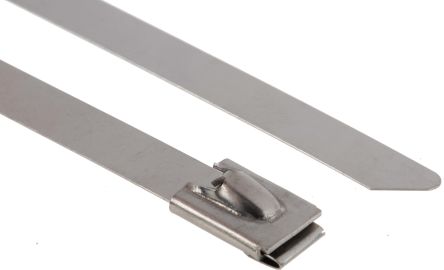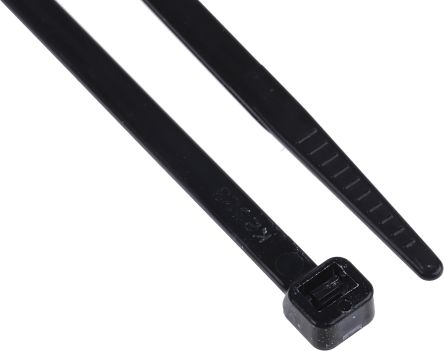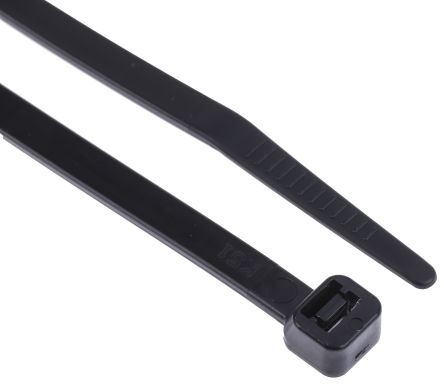- Automation & Control Gear
- Cables & Wires
- Enclosures & Server Racks
- Fuses & Circuit Breakers
- HVAC, Fans & Thermal Management
- Lighting
- Relays & Signal Conditioning
- Switches
- Batteries & Chargers
- Connectors
- Displays & Optoelectronics
- ESD Control, Cleanroom & PCB Prototyping
- Passive Components
- Power Supplies & Transformers
- Raspberry Pi, Arduino, ROCK, STEM Education & Development Tools
- Semiconductors
Cable Ties
Cable ties are common low-cost consumables in workshops, offices and on construction sites and can also be known as wire ties, zip ties or hose ties. They are used to secure, fasten, and separate cables and wires for the purposes of safety, identification and organisation. Cable ties can come in different colours, materials, lengths and widths depending on the requirements for the application, making them an ideal addition to any toolkit.
Are cable ties reusable?
Cable ties are generally single-use devices as they are cut off rather than loosened and reused, however, reusable zip ties are also available. If a closed loop needs to be opened again, rather than destroying the cable tie by cutting, it may be possible to release the ratchet from the rack. While some cable ties are designed for reuse with a tab that releases the ratchet, usually a sewing needle or a small screwdriver needs to be inserted between the ratchet and the rack in order to release the tie and allow it to be reused.
How to use a cable tie
Cable ties are simple to use and remove. Position the cable tie in the desired manner around the chosen subject (multiple wires or cables, for example). Insert the pointed end of the tie into the head of the tie. When the teeth of the cable tie catch, pull the head to tighten as far as it goes. If the tie does not lock into place, undo and turn the tie over: it will only tighten if inserted the right way. If you do not want to re-use the tie, you can trim the excess tie at the end. This loose part of the tie may have to be cut for health and safety purposes.
**Different types of cable ties **
- Coloured cable ties: using coloured cable ties is a great way to group cables together in an easily recognisable way.
- Marker ties: cable marker ties can be written on to identify what the tie is holding.
- Releasable cable ties: generally, more expensive than those for single use. The catch that is fitted to the head can be released to stop the teeth biting into the head, allowing the tie to be used many times.
Different cable tie materials
Cable ties are crafted from various materials, each with unique properties suited for specific applications. Whether you need robust metal zip ties for industrial use or flexible nylon cable ties for general purposes, choosing the right material ensures optimal performance and longevity. Here are some of the cable tie materials you can find on RS Hong Kong:
Stainless steel (SS) cable ties
Stainless steel cable ties provide exceptional strength and durability. Plus, because of their anti-corrosive properties, SS cable ties are ideal for demanding environments.
Nylon cable ties
Nylon cable ties are popular for their versatility and affordability. Plus, they offer good tensile strength, flexibility, and resistance to abrasion.
Plastic cable ties
Plastic cable ties, often made from materials like polyethylene or polypropylene, are lightweight and economical. These zip ties are typically used for light-duty applications where high tensile strength for bundling wires is not required.
Metal cable ties
Metal cable ties offer superior strength and durability compared to plastic ties. They are ideal for industrial settings or outdoor applications where resistance to harsh conditions is essential.
Cable ties industrial applications
The versatility of cable ties makes them indispensable tools in various industrial settings. Plus, their ability to secure, organise and protect electrical components, power supply cables and other types of wiring proves invaluable in numerous applications, including:
- Securing components: Cable ties reliably fasten components to structures, preventing unwanted movement or vibration that could lead to damage or malfunctions.
- Strain relief for cables: By anchoring cables and electric wires, cable ties alleviate strain on connections, safeguarding against wear and tear that can compromise electrical integrity.
- Bundling products for transport or storage: In logistics and warehousing, cable ties efficiently bundle products together, ensuring secure and organised transportation or storage.
- Cable management in electrical systems: Cable ties help maintain order in complex electrical installations, preventing tangled wires and facilitating easier maintenance and troubleshooting.
How to choose the right cable ties for your needs
Consider these factors when finding the right cable tie for your needs:
- Material: Nylon offers a balance of affordability and performance for general-purpose use, while stainless steel cable ties excel in harsh environments demanding superior strength and durability.
- Tensile strength: Ensure the chosen cable tie's tensile strength matches the pulling force it will have to endure.
- Size: The cable tie's size, measured in width and length, should correspond to the diameter of the cables being bundled.
- Reusability: Consider whether reusability is necessary, as releasable cable ties offer flexibility for future adjustments.
How to order cable ties from RS
As the trusted supplier of electrical components, RS Hong Kong also offers a wide range of cable ties suitable for a multitude of applications, industries and environments. Our range of cable ties features products from well-known and respected brands such as Legrand, HellermannTyton, and Thomas & Betts, as well as our own professional brand RS PRO.
Besides, ordering your cable ties is simple and convenient with RS Hong Kong. Here are your options:
- Online: Whether you need electrical hook-up cables, DP cables, wires or cable ties, the quickest and easiest way to get your supplies is by placing your order online. This option allows you to enjoy fast delivery or convenient in-store pickup at your local branch.
- Phone: Call us at 852 2421 9898, and our dedicated team will assist you with your order.
How delivery works at RS Hong Kong
RS offers flexible, fast and efficient delivery of cable ties across Hong Kong. To find out more about our delivery options and services, please refer to our Delivery Information page.
